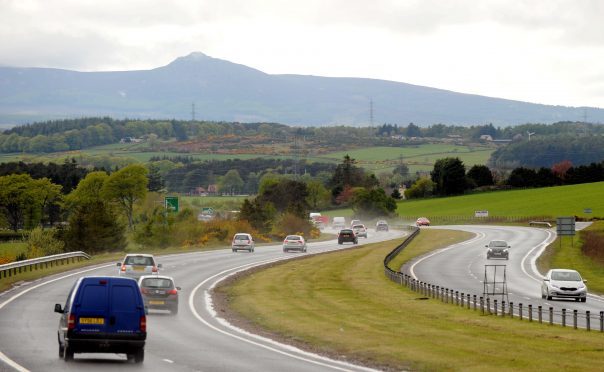Land and property-owners impacted by the multibillion pound dualling of the A9 and A96 have been warned to brace themselves for compulsory purchases.
Work on the £3billion upgrade of the A9 Inverness to Perth road is under way and due to be completed by 2025, while advanced plans are also in place for a new £3billion A96 from Inverness to Aberdeen by 2030.
The first section of the A9 dualling between Kincraig and Dalraddy is due to be completed this summer, with the rest under preparation.
Legal firm Strutt & Parker last night urged landowners on the rest of the route to “begin the process of planning for compensation”.
Only one compulsory purchase order (CPO) has been made in the remaining sections to date – the Luncarty to the Pass of Birnam section.
The draft orders and environmental statement for the Inverness to Nairn section of the A96 work were published at the end of last year.
It will involve a a total of six flyovers and is expected to require about 25 acres of residential, commercial and industrial land, including the acquisition of one property.
Another 190 acres would be taken from land earmarked for new development, as well as 605 acres of agricultural land, half of which is considered “prime”, and 116 acres of forestry and scrubland.
Strutt & Parker predicted yesterday that a public local inquiry “appears likely” for the long-awaited scheme.
Diane Fleming, from the firm’s Inverness office, said: “These projects will benefit the north of Scotland by reducing travel times between key locations and significantly improving safety but many property owners will be affected as a result.
She added: “It can be a stressful and difficult time for a property owner or tenant if they are affected by a road scheme and/or the looming prospect of a CPO.
“The imposition of a CPO can be daunting but it is not necessarily a worst case scenario.”
A Transport Scotland spokesman said: “Our plans to dual the A9 between Perth and Inverness and A96 between Inverness and Aberdeen are moving on apace with design work underway on both these ambitious programmes.
“Community engagement has been at the heart of the development of both dualling programmes and this engagement will continue to ensure individuals, businesses and road users affected by the work are kept fully informed.
“More importantly, this will ensure vital feedback is taken into account as both dualling programmes are designed, procured and constructed.”
